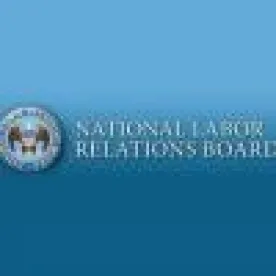Employees’ free choice and their right to a secret-ballot election on union membership are potentially at risk, given the latest development from the Office of the General Counsel of the National Labor Relations Board (“NLRB” or “Board”). On April 11, 2022, the NLRB’s General Counsel filed a brief urging a change in long-standing precedent, demanding that the Board force employers to recognize unions as the representative of their employees without first allowing employees the opportunity to cast their votes on union membership in a secret-ballot election held by the Board. The only real requirement for this dramatic result is that the union present signed authorization cards from a majority of the employees that ostensibly confirm the employees’ desire to be represented by the union and that the employer decline recognition of the union without a good faith doubt as to the union’s majority. This brief is General Counsel Jennifer Abruzzo’s first major move to follow through on her previously stated goal of restoring this standard—known as the Joy Silk doctrine—which was abandoned more than 50 years ago.
The controversial Joy Silk doctrine was short-lived and abandoned following the U.S. Supreme Court’s decision in Gissel Packing, which held that the employees’ right to have union representation determined by a Board-supervised and -conducted secret-ballot election could only be waived by the Board where an employer commits sufficiently serious unfair labor practices that the effects of the violations make a free and fair election not possible.
If the Board were to agree with the General Counsel’s position and that position is upheld by the courts, it will become easier for a union to completely avoid employee secret-ballot elections and require that employers recognize the union as the employees’ representative based solely on the union’s presentation of signed employee authorization cards.
Currently, an employer has the right to decline to voluntarily recognize a union following its claim to have the support of the majority of the employees in a unit and to insist on a secret ballot vote. An employer may only be forced to recognize and bargain with a union if the Board, under the Gissel Packing standard, determines that the union at one time did enjoy the support of the majority of the employees and a fair election is highly unlikely or impossible because of the employer’s extensive and egregious unfair labor practices during the pre-election period.
By declining voluntary recognition, an employer provides its employees with the opportunity to have their voices heard, free from external pressures, through a secret-ballot election. Without the secret-ballot election process, employees may feel forced to express support for the union while under the watchful eye of the union and its supporters. It is also quite common for employees to not understand the significance of signing a union authorization card, especially because current law allows unions to misrepresent how they will use the signed cards or even lie to get them signed. For example, unions often tell employees that signing the card will simply bring about a vote and the employees can then vote “yes” or “no” when the election takes place. Secret-ballot elections protect employees’ free choice and due process rights and are a fundamental part of employees’ Section 7 rights under the National Labor Relations Act (NLRA).
However, based on the positions asserted in the General Counsel’s brief, the General Counsel does not believe that an employer should have this discretion in choosing to protect its employees’ ability to vote for union membership. Rather, the General Counsel argues in the brief that the employer should bear the burden of establishing that it has “a good faith doubt” as to the union’s claim that it possesses majority support. It is unclear from the brief how the General Counsel envisions an employer would satisfy this burden. The General Counsel also argues that the Board should force an employer to recognize and bargain with a union by issuing a bargaining order if the Board determines that the circumstances demonstrate that the employer lacked a good faith doubt when it refused to grant the union recognition. The General Counsel contends that the Board should consider the employer’s unfair labor practices (which the General Counsel has recently announced she believes should also include captive-audience meetings), the sequence of events, and the passage of time between the employer’s refusal to grant voluntary recognition and its alleged unlawful conduct.
Even absent any unfair labor practices, the General Counsel is advocating for forced recognition “if the circumstances demonstrate a lack of good faith doubt . . . such as due to testimony or internal documentary evidence revealing the employer’s purpose at the time of its refusal to bargain, the legitimacy of the employer’s proffered reasons for refusing to bargain, or its failure to offer any explanation.” As an example, the General Counsel provided that forced recognition would be appropriate where an employer declined voluntary recognition to “gain time in order to persuade employees to change their minds, even using what would otherwise be lawful persuasion.” In other words, the General Counsel is attempting to deter employers from choosing to exercise their right to free speech to express their views, which right is protected by Section 8(c) of the NLRA.
If adopted and upheld, the General Counsel’s proposed framework for union recognition without a secret-ballot election will likely lead to increased union organizing campaigns across the country as unions take advantage of the newfound ease in imposing union membership on employees. It also will likely result in a further diminution of employees’ free speech rights and an increase in employees being compelled into union membership against their free choice.




 />i
/>i
